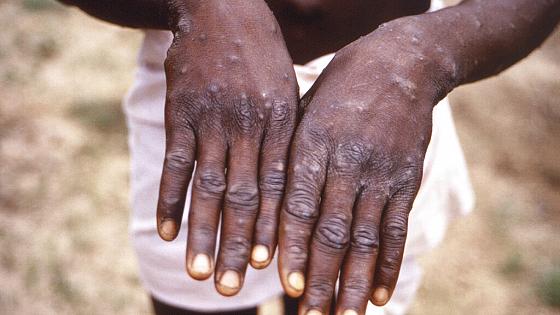The World Health Organisation (WHO) on Tuesday, July 26, said the rapid spread of the Monkeypox outbreak could be stopped with the right strategies in the right groups.
WHO Technical Lead on Monkeypox, Dr Rosamund Lewis, said at a press briefing at the UN health agency’s headquarters in Geneva that countries should act fast to stop the spread of the virus.
Lewis said “time is going by and we all need to pull together to make that happen”.
Read Also: NIMR Reveals Discovery Of New Malaria Vector In Northern Nigeria
The WHO Director-General Tedros Ghebreyesus, on Saturday, declared the spread of the virus to be a Public Health Emergency of International Concern (PHEIC).
PHEIC is WHO’s the highest level of alert.
Lewis said;
Through this, we hope to enhance coordination, cooperation of countries and all stakeholders, as well as global solidarity.
WHO assessed the risk posed to public health by Monkeypox in the European region as high, but at the global level as moderate.
With “other regions not at the moment as severely affected”, declaring a PHEIC was necessary “to ensure the outbreak was stopped as soon as possible”.
In 2022, there have been more than 16,000 confirmed cases of monkeypox in more than 75 countries. Lewis said the real number was probably higher.
Lewis pointed out that in the Democratic Republic of the Congo, several thousand cases were suspected, but testing facilities are limited.
She said;
The global dashboard did not include suspected cases.
Some 81 children under the age of 17 were reported as having been infected globally, she added, with the majority of cases being among young men, with the median age being 37.
First identified in monkeys, the virus is transmitted chiefly through close contact with an infected person.
Until 2022, the virus which causes Monkeypox has rarely spread outside Africa where it is endemic. But reports of a handful of cases in Britain in early May signalled that the outbreak had moved into Europe.
Lewis pointed out that stigma and discrimination must be avoided, as that would harm the response to the disease.
At the moment the outbreak is still concentrated in groups of men who have sex with men in some countries, but that is not the case everywhere.
It is really important to appreciate also that stigma and discrimination can be very damaging and as dangerous as any virus itself.
Monkeypox could cause a range of signs and symptoms, including painful sores. Some people developed serious symptoms that need care in a health facility.
Those at higher risk for severe disease or complications include pregnant women, children, and immunocompromised persons.
Lewis said WHO was working with Member States and the European Union on releasing vaccines, and with partners to determine a global coordination mechanism.
She emphasised that mass vaccination was not required, but the WHO had recommended post-exposure vaccination.
Vaccine sharing should be done according to public health needs, country by country, and location by location. Not all regions had the same epidemiology, she explained.

